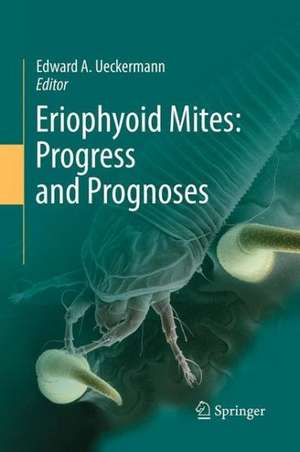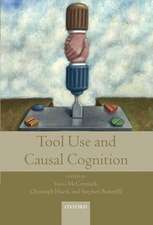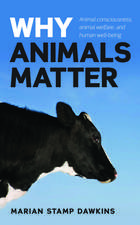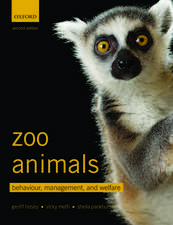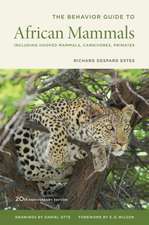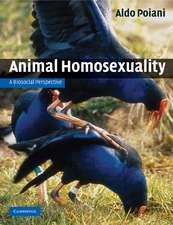Eriophyoid Mites: Progress and Prognoses
Editat de Edward A. Ueckermannen Limba Engleză Paperback – 17 oct 2014
| Toate formatele și edițiile | Preț | Express |
|---|---|---|
| Paperback (1) | 786.20 lei 38-44 zile | |
| SPRINGER NETHERLANDS – 17 oct 2014 | 786.20 lei 38-44 zile | |
| Hardback (1) | 951.47 lei 6-8 săpt. | |
| SPRINGER NETHERLANDS – 21 iun 2010 | 951.47 lei 6-8 săpt. |
Preț: 786.20 lei
Preț vechi: 1034.47 lei
-24% Nou
Puncte Express: 1179
Preț estimativ în valută:
150.43€ • 157.08$ • 124.23£
150.43€ • 157.08$ • 124.23£
Carte tipărită la comandă
Livrare economică 11-17 aprilie
Preluare comenzi: 021 569.72.76
Specificații
ISBN-13: 9789400793347
ISBN-10: 9400793340
Pagini: 316
Ilustrații: VI, 307 p.
Dimensiuni: 155 x 235 x 17 mm
Greutate: 0.45 kg
Ediția:2010
Editura: SPRINGER NETHERLANDS
Colecția Springer
Locul publicării:Dordrecht, Netherlands
ISBN-10: 9400793340
Pagini: 316
Ilustrații: VI, 307 p.
Dimensiuni: 155 x 235 x 17 mm
Greutate: 0.45 kg
Ediția:2010
Editura: SPRINGER NETHERLANDS
Colecția Springer
Locul publicării:Dordrecht, Netherlands
Public țintă
GraduateCuprins
Preface.- What’s “cool” on eriophyoid mites?.- Behavioural studies on eriophyoid mites: an overview.- Plant–eriophyoid mite interactions: cellular biochemistry and metabolic responses induced in mite-injured plants. Part I.- Plant–eriophyoid mite interactions: specific and unspecific morphological alterations. Part II.- Host-plant specificity and specialization in eriophyoid mites and their importance for the use of eriophyoid mites as biocontrol agents of weeds.- Effectiveness of eriophyid mites for biological control of weedy plants and challenges for future research.- The impact of eriophyoids on crops: recent issues on Aculus schlechtendali, Calepitrimerus vitis and Aculops lycopersici.- An insight into some relevant aspects concerning eriophyoid mites inhabiting forests, ornamental trees and shrubs.- The role of eriophyoids in fungal pathogen epidemiology, mere association or true interaction?.- The control of eriophyoid mites: state of the art and future challenges.- Adventive eriophyoid mites: a global review of their impact, pathways, prevention and challenges.- DNA-based methods for eriophyoid mite studies: review, critical aspects, prospects and challenges.- Collection and detection of eriophyoid mites.- Recommended procedures and techniques for morphological studies of Eriophyoidea (Acari: Prostigmata).
Textul de pe ultima copertă
This collection of 14 papers comprises primary research articles and literature reviews, presenting a broad overview of the developments in about all possible aspects of members of the plant parasitic superfamily Eriophyoidea. It deals with their DNA, species interactions, quarantine importance, host specificity, potential as biological control agents of weeds, chemical control, behaviour, their role in fungal pathogen epidemiology, influence in forests and on ornamentals, collecting and mounting techniques and their interaction with crops. Eriophyoids are notorious for the deformities, like, galls, erinea, leaf-rolls and rust, they can produce while feeding on their plant hosts. However, they can also act as vectors of viral diseases or are vagrants, mainly responsible for rust symptoms. Therefore the Eriophyoidea includes many economical important species responsible for great losses to crop production in greenhouses, agriculture and forests. Their minuteness and ability to producetheir own hide-outs (deformities) complicate their control. However, they also have a beneficial side, as control agents of weeds. Almost every plant housed at least one eriophyoid species or even two or more and therefore there are still thousands of new species to be discovered.
Caracteristici
Benefits, pest status and control of eriophyoids are discussed A special chapter on their quarantine importance of value to quarantine officers Eriophyoid knowledge since 1996 is updated and gaps for future research identified
